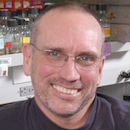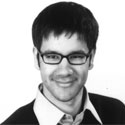Academic Editors
The following people constitute the Editorial Board of Academic Editors for PeerJ. These active academics are the Editors who seek peer reviewers, evaluate their responses, and make editorial decisions on each submission to the journal. Learn more about becoming an Editor.

Marc-André Delsuc
Marc-André Delsuc activity is mostly oriented toward the use and improvement of spectroscopies, in particular NMR and more recently FT-MS. This includes new experiment design, development of data processing methods, development of software programs. I have been deeply involved in field as diverse as protein structural analysis, protein-ligand screening, complex mixture analysis, quantum mechanic details of the NMR phenomenon, automatic data analysis, fractal dimension of proteins and polymers, etc.

Jeroen AA Demmers
Team leader Proteomics Center & Assistant Professor Erasmus University Medical Center Rotterdam
Education:
EUR Fellow, Erasmus University Medical Center
Postdoc, The Rockefeller University (Chait lab)
PhD, Utrecht University (Heck & Killian labs)
MSc (hons) Chemistry, Utrecht University
Jane C. Deng
Assistant Professor of Medicine, Division of Pulmonary and Critical Care Medicine, UCLA School of Medicine.

Andrew Denovan
Andrew's research primarily focuses on individual differences, health, and performance. To this end, he has an active interest in the development and evaluation of psychological measures, and research methods including psychometrics and statistical modelling. His research also focuses on wellbeing, applied cognitive psychology, and psychopathology.

Bryn TM Dentinger
Head of Mycology at the Royal Botanic Gardens, Kew.

Robert J. Deschenes
Professor and Chair of the Department of Molecular Medicine, Morsani College of Medicine, University of South Florida, Fred Wright Professor of Cancer Biology

Nicolas Desneux
Research Director at INRA, France. Main expertise is in the fields of Ecology, Community ecology, ecotoxicology and IPM

Lucía DeSoto
Lecturer in Botany at Complutense University of Madrid

Christophe Dessimoz
SNSF Professor at the University of Lausanne, Reader at University College London, and Group Leader of the Swiss Institute of Bioinformatics

Agnes Dettai
Associate professor at the Muséum national d’Histoire naturelle, Paris. Curator of the fish barcode collection.
I study the systematics and evolution of Actinopterygians, especially at the inter/intra specific boundary and in species delineation with integrative approaches, but also on the evolution of mitogenomes in fish species from the Southern Ocean. I also work on molecular identification (barcoding, metabarcoding) of marine and freshwater fish and benthic species.

Sylvain Deville
My background and training is materials science, mostly in the field of technical porous and dense ceramics. My current research interest right now is focussed on freezing pretty much anything I can get my hands on, and see how it applies to domains beyond materials science.

Shanmuga Sundar Dhanabalan
Dr. Shanmuga Sundar Dhanabalan is an accomplished researcher with a proven track record in designing, developing, and translating micro- and nano-scale devices. CIA’s primary objective is to advance the field of medical and healthcare by creating next-generation products that enhance quality of life and well-being, making a significant contribution to society. He is currently leading a team developing ‘wearable and connected sensors’ at RMIT University, focusing on materials, flexible and stretchable devices, wearables, optics, and photonics. CIA graduated with a Ph.D. in flexible electronics in June 2017. He secured a competitive Postdoctoral Fellowship from the Chilean government from 2018 to 2021. In 2021, he joined as a Research Fellow at RMIT University in Melbourne. CIA studies have led to 38 publications in referred international journals, 1 provisional patent, 1 Indian patent, 10 book chapters, and 7 books in progress as editor. He has presented at 19 national and international conferences. Several outcomes have been highlighted by scientific websites (such as Photonics Media, USA). CIA's research work has led to securing grants from Australian government research schemes, such as the Cooperative Research Centres Projects, the ARC Research Hub for Connected Sensors for Health, Victorian Medical Research Acceleration Fund, and the Advanced Manufacturing Growth Centre's Commercialisation Fund.

